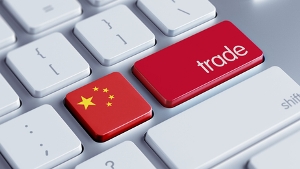 How can an American importer be compensated for defective products imported from a China supplier? The outlook isn’t good if that supplier wasn’t qualified by anything more than a search engine ranking, such as those that can be “bought” in search engines such as Alibaba.
How can an American importer be compensated for defective products imported from a China supplier? The outlook isn’t good if that supplier wasn’t qualified by anything more than a search engine ranking, such as those that can be “bought” in search engines such as Alibaba.
Import Statistics
Children’s products provide one such example. The number of problems in the imported children’s products industry – particularly with clothing, nursery products, and toys – increased by nearly 20 percent from 2012 to 2013, despite publicity regarding concern for the safety of imported children’s products. Unfortunately, only 10 percent of children’s products for which claims were made were corrected, replaced, or returned, according to a report issued by the Consumer Products Safety Commission.
Biting the Bullet
If your imported products are incorrect or defective, what recourse do you have? Unfortunately, unless you have some sort of leverage with the offshore supplier, there is little that you can do beyond hoping that the shipper proves to be trustworthy and one that stands behind its products.
Typically, engaging in legal action against the supplier is a useless and futile endeavor. You simply have to take a loss on the imports.
Due Diligence Is Critical
If you don’t want to find yourself in this disadvantageous position, then you must do your homework before you buy anything from an offshore manufacturer or trading agent.
There are trustworthy manufacturers (not trading companies, which seems to be the bulk of Alibaba advertisers) that can be discovered via Internet research. Finding a trustworthy offshore manufacturer is not impossible, but it takes work and knowledge.
And there are some trading agencies – companies that do not manufacture products but have a relationships with several manufacturers in many different industries and usually accept orders of smaller quantity than the minimum order quantity from a manufacturer.
Qualifying a Factory or Trading Agency
Request a list of products that are similar (or identical, if possible) to those of interest and ask the company to forward pictures of those products. Ask the company if they have Consumer Products Safety Commission certifications, or other certifications that might help confirm the company’s trustworthiness.
But beware: many such certifications are fraudulent. Ask the company for the issuing agency and, if possible, confirm that the certificates are legitimate. Although it is unlikely the company will disclose names of their clients, ask for them anyway. You never know. If the company will not disclose names of companies in the U.S., then ask for names of companies in Canada, another English-speaking country with similar requirements. Inform the company that you do not sell in Canada and that disclosing the name of a Canadian client will not jeopardize its relationship with the Canadian client. You have nothing to lose by pushing the issue and everything to lose by not.
Getting Products From There to Here
What about freight? How do you get the goods from there to here? It is likely that the offshore company will want to ship the cargo using its own forwarder. If you use an offshore forwarder, the cargo, if shipped by ocean, may be insured by a China insurance company. Instead, advise the company that will provide your own freight forwarder and customs broker. And then look for an American freight forwarding / brokerage company that can insure your products with an American insurance company.
Take Your Time
The risks are too great to act impulsively. If it sounds too good to be true, then it isn’t true. And companies touting ‘get rich quick’ claims should be investigated with even greater scrutiny.
Walker World Trade has been in the international trade business since 1936 and has seen it all. Contact Walker today for help finding a quality, reputable China supplier.

